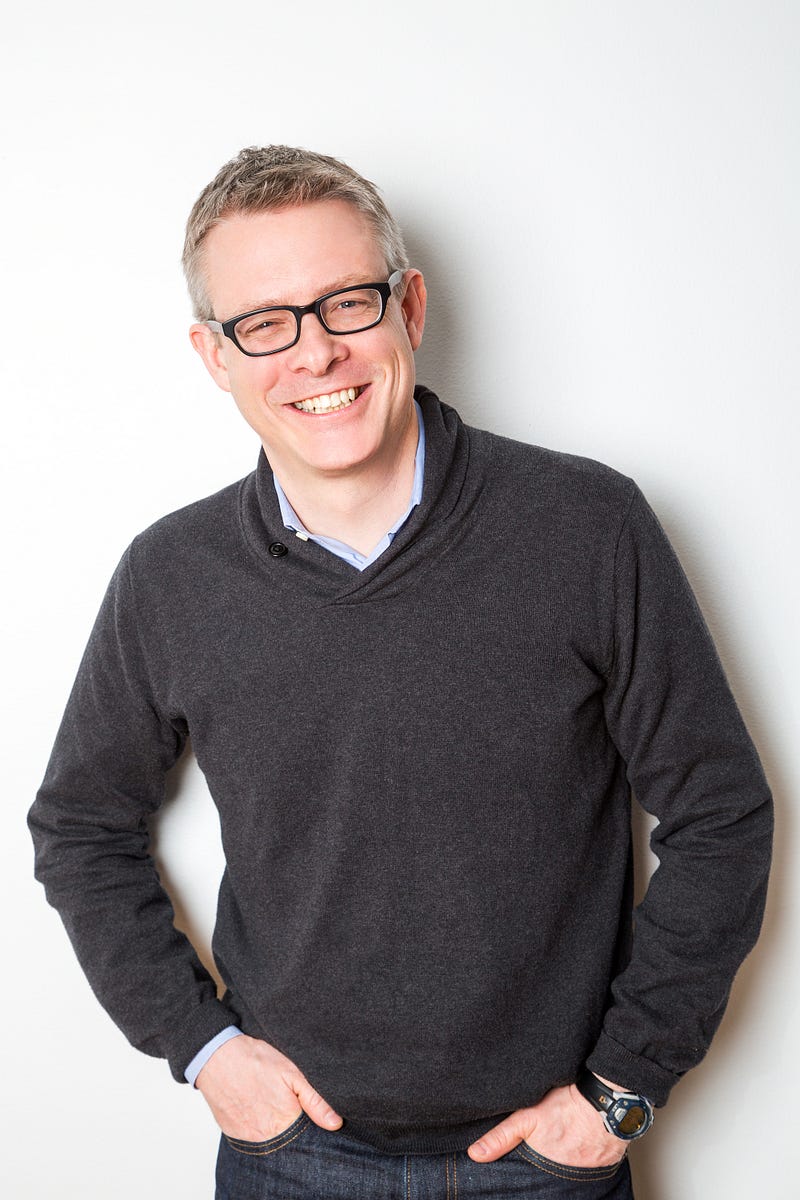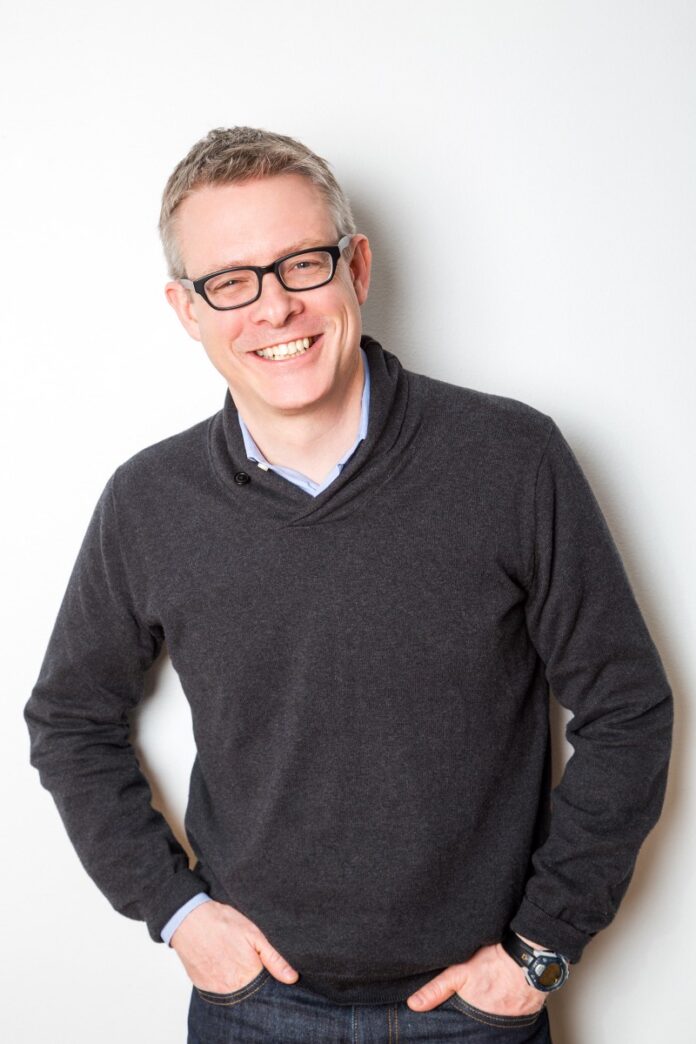Save The Music’s mission is helping students, schools and communities reach their full potential through the power of making music. We do that by partnering with large public school districts and their surrounding communities. When the districts commit to bringing music teachers back to teach music during the school day, we make the capital investment of instruments, technology, professional development and curricular materials to get each school’s program off the ground. And then we want to stick with those community partners until every student has access to music education.
As part of my series about companies and organizations making an important social impact, I had the pleasure of interviewing Henry Donahue, Executive Director of the Save The Music Foundation.
Prior to Save The Music he helped build Purpose, a digital strategic and creative agency that focuses on social impact projects and was recently acquired by Cap Gemini. As COO & Head of Partnerships, he oversaw Purpose’s business development, marketing, finance and operations. Notable client projects included branding and launch content for Syria’s White Helmets, Everytown for Gun Safety, social media strategy for the ACLU, and a global campaigning technology platform for Oxfam International.
Before joining Purpose, Henry worked as a media executive focused on digital product development. He held senior executive positions at Discover Magazine, Condé Nast, PRIMEDIA and LendingTree.com.
Henry spent most of the 1990s on the road across the USA as a fundraiser for political candidates including U.S. Senators Jay Rockefeller and Ron Wyden. At the same time, he was playing guitar in an indie rock band and running a small independent record label.
Henry graduated from Harvard College with a degree in American History. He has an MBA from the Darden Graduate School of Business at the University of Virginia.
Thank you so much for doing this with us Henry! Can you tell us a story about what brought you to this specific career path?
I’ve always loved music. Punk rock was an essential creative outlet for me growing up in suburban DC. As my professional career progressed from political fundraising to business school to digital media executive, I almost always had a side gig playing guitar in bands or promoting independent music. So when Chris McCarthy took over the management of VH1 and offered me the opportunity to reenergize the Save The Music organization, I jumped at it.
Can you share the most interesting story that happened to you since you began leading your company or organization?
One of the amazing aspects of this job is that I’ve gotten to know a few of my musical heroes, including Wayne Kramer of the legendary Detroit proto-punk band the MC5. In the late ’60s and early ’70s, the MC5 were at the forefront of politically aware hard rock music. As part of a guitar auction we put together with Gibson Guitars, I got to hang out with Wayne for an afternoon and ask him a long list of fan questions (e.g. they played at the 1968 Democratic National Conventions right as the riot was breaking out.)
Wayne is also the co-founder of an organization called Jail Guitar Doors (named after a song about Wayne by The Clash) which provides guitar and songwriting lessons to incarcerated people in and around LA.
It would definitely impress the teenage me that the now middle-aged me can call up the guy who wrote: “Kick Out the Jams.”
Can you share a story about the funniest mistake you made when you were first starting? Can you tell us what lesson you learned from that?
Trial and error are a big part of my process. I am not an expert on most things. My usual approach is to test a range of options in order to get real-world feedback on what works and what doesn’t, and then make a decision. As a result, I’ve made a lot of mistakes!
Story-wise, early in my previous career as a CFO, I hired an accountant from another media company who I later discovered was also the bookkeeper for a large illegal poker game in the city. The lesson is “ask for and check people’s references.”

Can you describe how you or your organization is making a significant social impact?
Save The Music’s mission is helping students, schools and communities reach their full potential through the power of making music. We do that by partnering with large public school districts and their surrounding communities. When the districts commit to bringing music teachers back to teach music during the school day, we make the capital investment of instruments, technology, professional development and curricular materials to get each school’s program off the ground. And then we want to stick with those community partners until every student has access to music education.
Using Newark, NJ as an example, we are in the 4th year of a five year project there that has brought together the Mayor’s office, the city school district, several large NJ-focused foundations, local arts organizations and performing artists like Queen Latifah and Wyclef Jean. When we are done next year, we’ll have invested in close to 50 Newark schools and increased the percentage of Newark students with access to music education from 53% to 98%.
We’re active right now in over a dozen large communities. We think if we can get to 25 large-scale, community-based projects nationwide, we can reach our goal of every student in the U.S. having access to music education.
Can you tell us a story about a particular individual who was impacted or helped by your cause?
I meet inspiring teachers and young people all the time. Even in the toughest city schools, the band and choir room is almost always a place of joy and refuge. My favorite stories are about students from Save The Music schools who then go on to become music teachers and return to their communities. Shout outs to Cesar in Trenton, Jocelyn in New Haven, and Nena in Queens.
Are there three things the community/society/politicians can do to help you address the root of the problem you are trying to solve?
- Invest in quality public education — At Save The Music, our goal is to help young people become successful members of society as opposed to brilliant musicians. Across the board as a society, improving the quality of public education is the single most important thing we can do.
- Prioritize a well-rounded education and social-emotional learning in addition to STEM — We’ve seen an encouraging trend over the last few years toward a well-rounded education and away from an overemphasis on STEM and testing. I’d hate to see us lose that education momentum due to post-pandemic budget cuts. Let’s continue to make sure that students know how to listen, express themselves creatively, and work productively to build our communities.
- Make music and the arts core to our post-pandemic rebuilding efforts — This has been a devastating time for performing artists, teaching artists, music venues, live event promoters and all kinds of cultural organizations. For our communities to come back we need to make sure that live music comes back.
How do you define “Leadership”? Can you explain what you mean or give an example?
I am a fan of the idea of “leadership as service,” meaning that the leader’s job is to help everyone on the team better. I try to set clear goals for individuals and the team, tie those goals to measurable objectives, and then work with people to maximize their potential so we get to those objectives together.
What are your “5 things I wish someone told me when I first started” and why. Please share a story or example for each.
- First, work with nice people — when we were building the team at Purpose (the creative social impact agency that was acquired by CapGemini earlier this year), our first hiring rule was “no a-holes.”
- Also work with creative people — even if you work in an area that’s not especially creative (i.e. no one wants their accountants to get creative), jobs are more fun when you are building a creative enterprise with cool, creative people.
- Have fun– sometimes you have to do or try things just because they’re going to be fun. At Discover Magazine, we used to host a panel on science fiction at San Diego Comic-Con every year, mostly because we could and it was incredibly fun.
- The entrepreneurial option is usually less risky than you think — in the long run, you will benefit from working in jobs with real responsibility and real stakes. And real entrepreneurial talent is often rare at big companies and thus in high demand.
- The corporate option is often more risky than you think — big corporations are the inventors of the across-the-board mass layoff.
You are a person of enormous influence. If you could inspire a movement that would bring the most amount of good to the most amount of people, what would that be? You never know what your idea can trigger. 🙂
I’d start a movement where people spend less time on social media or watching the news and more time communicating with their neighbors. (My college-age children are rolling their eyes somewhere now as I type this…)
Can you please give us your favorite “Life Lesson Quote”? Can you share how that was relevant to you in your life?
From the immortal Patrick Swayze movie Road House, “Always be nice…until it’s time to not be nice.” I always try to lead with kindness.
Is there a person in the world, or in the US with whom you would like to have a private breakfast or lunch with, and why?
Ian MacKaye, from the band Fugazi and Dischord Records. The all-time example of how to make great art with integrity and impact.
How can our readers follow you on social media?
@henrydonahue on Twitter or connect with me on LinkedIn
This was very meaningful, thank you so much. We wish you only continued success on your great work!


